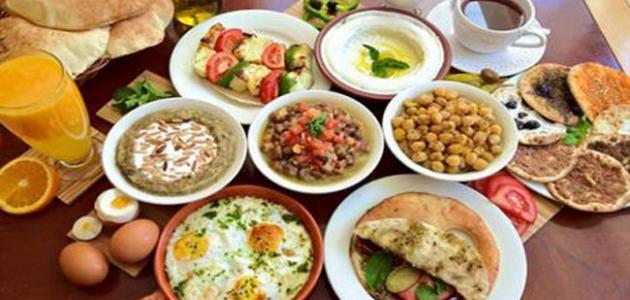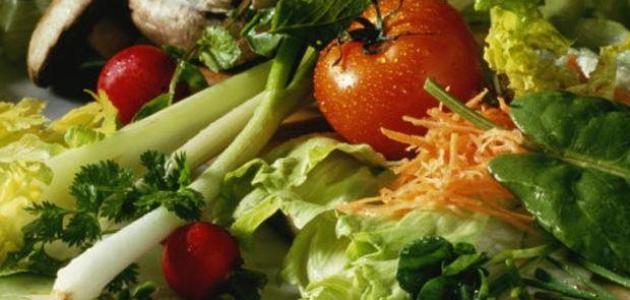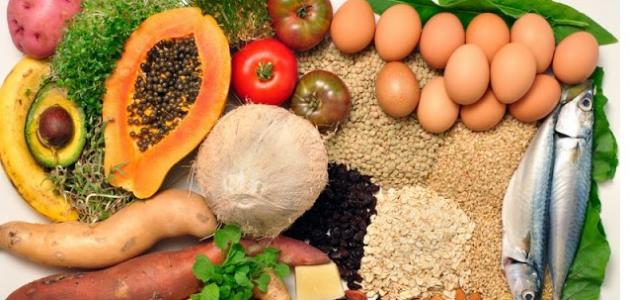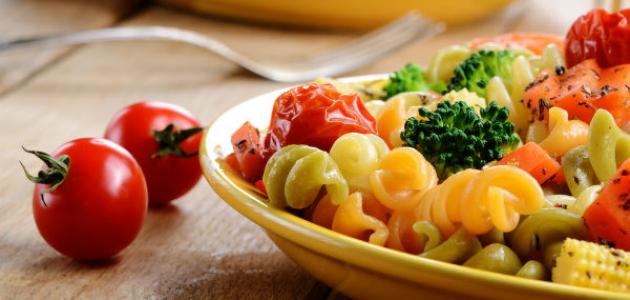Contents
Suhoor
Muslims eat two meals a day in the month of Ramadan, the first is sahur, which is a light meal that is eaten before dawn, and the second meal is breakfast, which is eaten at the end of the fasting period at sunset. [1] It is worth noting that when abstaining from food and drink during Fasting hours, the body uses fats, and carbohydrates stored in the liver and muscles, to obtain energy from foods consumed during the night, in addition to that, the body cannot store water, and at the same time it is not possible to avoid losing it, whether through urination, sweating, or breathing And the kidneys retain the largest amount possible by reducing the amount of water that is excreted through the urine, and some people can suffer from headaches, fatigue, and difficulty concentrating as a result of their mild dehydration, depending on the weather and the length of hours of fasting. [2]
The best suhur in Ramadan
Choosing healthy options for suhoor meals, and focusing on fluid intake, helps you cope better with fasting, and provides the body with the necessary energy throughout the fasting period. [2] Here are some of the most important tips for getting the best suhoor meal:
- Drinking fluids: It is important to keep drinking fluids to avoid dehydration, especially when fasting Ramadan in hot summer seasons, or in areas that are naturally hot, and that is by drinking more fluids between Iftar and Suhoor, [1] but it is worth noting the need to replace drinks caffeine - containing water or fluids that contain vitamins such as fruit juices, [3] It is also important to focus on foods rich in fluids to increase the percentage of water in the body, it can eat green salad that can be prepared from the tomatoes and cucumbers, can also eat watermelon on Suhoor. [4]
- Avoid salty foods: It is preferable not to eat salty foods in abundance, as they cause a feeling of thirst, [2] and salty foods include: canned foods, processed foods, salted nuts, as well as pickles. Instead, it is advised to eat more fruits and vegetables that reduce the feeling of thirst. [5]
- Eat complex carbohydrates within a meal: Complex carbohydrates release energy more slowly during fasting, examples of which are: barley, wheat, oats, millet grains, semolina, beans and lentils. [6]
- Eat dietary fiber: Fresh and unpeeled fruits and vegetables are rich in fiber and slowly digested. [3]
- Eat foods that contain proteins: Dairy products such as milk, yogurt, and yogurt, in addition to unsalted cheese and eggs, are among the most important protein-rich foods, in addition to avocado and tahini. [4]
- Avoid consuming caffeine: Caffeine can cause frequent urination in some people, which may lead to dehydration, so it is advised to avoid drinks that contain caffeine, such as: coffee, tea, and soft drinks, and it is worth noting that soft drinks are sweetened with sugar, in addition to It contains caffeine, and it also adds extra calories to the diet. [4]
For more information about a healthy breakfast, you can read the article What is the best breakfast in Ramadan .
Healthy suhoor meals
Here are some examples of foods that can be eaten for the pre-dawn meal: [2]
- Oats: Oats can be eaten with milk or with yogurt, and oatmeal can be eaten as a source of whole grain oats and liquids as well, because it is prepared with water or milk, and fresh or dried fruits, nuts and seeds can be added.
- Breakfast cereals: Breakfast cereals provide a lot of fiber, and are usually fortified with vitamins and minerals, and thus they increase the nutritional value, and fluids and nutrients, such as calcium, iodine, and B vitamins can also be obtained from milk .
- Yogurt: Yogurt is a good option to eat at the suhoor meal, as it is a good source of some nutrients such as protein, calcium, iodine, B vitamins, and fluids, and it can be eaten with grains and fruits.
- Bread: Be careful to choose bread made from whole grains such as slices of brown bread, and you should avoid eating it with salty cheeses, or processed meats, and it can be eaten with nuts butter without added salt, soft cheese, or bananas, but you must be careful to drink quantities Sufficient water and fluids, given that the bread is a dry food, and it can also be eaten with lentil soup, as it is rich in liquids, and it is considered one of the traditional foods during the month of Ramadan in some countries.
The following is an example of a complete suhoor meal: [4]
- Two slices of bread
- Boiled egg, or scrambled eggs.
- Vegetable slices, you can choose two different types of vegetables.
- Labneh, or cheese, and add thyme and olive oil.
- Herbal tea .
Benefits of the suhoor meal
The suhoor meal is important during the month of Ramadan, as it supports the body during fasting hours, [7] especially for pregnant and breastfeeding women, the elderly, adolescents, and also children who want to fast, [4] and as mentioned previously, the suhoor meal should be healthy and moderate. And saturated to provide adequate energy for hours of fasting, so it is important to focus on slowly digested foods such as complex carbohydrates, and to drink fluids that aid digestion and keep the body hydrated during the day. [7]
Foods to avoid thirst
Moisturizing the body is very important to maintain its health, and to protect it from dehydration and its complications, such as: headache, fatigue, skin problems, muscle spasms, low blood pressure, rapid heartbeat, and despite the importance of drinking water, it can also be obtained from many foods Healthy foods that contribute to increasing the amount of water in the diet, including: peaches, skim milk, oranges, lettuce, [8] apples, cantaloupe, celery , strawberries, zucchini, cucumber, [9] , grapefruit, watermelon, in addition to soup. , Stews, and gravy. [10]
References
- ^ AB : Heba Abolaban, Ahmad Al-Moujahed (2017), “Muslim patients in Ramadan: A review for primary care physicians” , Avicenna Journal of Medicine , Issue 3, Folder 7, Page 81-87. Edited.
- ^ A b t w "A Healthy Ramadan" , Www.nutrition.org.uk , 5-2019, Retrieved 7-4-2020. Edited.
- ^ A b "What ' To Eat During Ramadan? Arabic Home's of a Complete Meal Plan" , Www.health24.com , 29-5-2017, Retrieved 7-4-2020. Edited.
- ^ A b t w c "Dietary Recommendations For The Month Of Ramadan" , Www.emro.who.int , Retrieved 7-4-2020. Edited.
- ↑ "TIPS ON RAMADAN HEALTHY EATING" , www.qu.edu.qa , Retrieved 7-4-2020. Edited.
- ↑ TASNIM KHALIFE, JESSIE PETTIT, BARRY WEISS (1-5-2015), "Caring for Muslim Patients Who Fast During Ramadan" , American Family Physician , Issue 91, Folder 9, Page 640-642. Edited.
- ^ A b " the Healthy Fasting During Ramadan" , Www.rmit.edu.au , 8-2010, Retrieved 8-4-2020. Edited.
- ↑ Brianna Elliott (9-8-2017), “19 Water-Rich Foods That Help You Stay Hydrated” , www.healthline.com , Retrieved 4-8-2020. Edited.
- ↑ Jennifer Berry (7-8-2019), “Hydrating foods: The top 20 and their benefits , ” www.medicalnewstoday.com , Retrieved 8-4-2020. Edited.
- ↑ Jeanie Lerche Davis (2007), "Top 10 Ways to Stay Hydrated" , www.webmd.com , Retrieved 4-8-2020. Edited.






